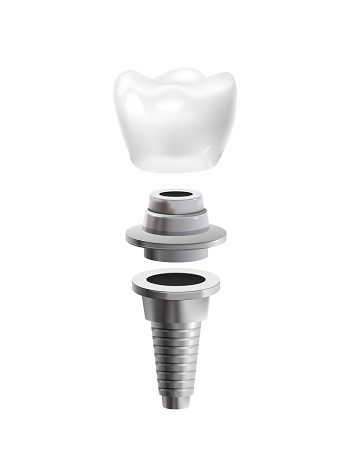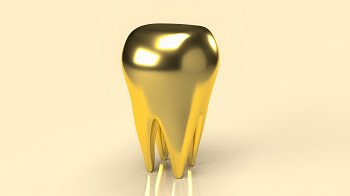Everything you need to know about Dental Crowns
Dental Implants Solutions
Also known as a Replacement Crown, dental crowns are an additional capping off of an already decayed, injured, or bruised tooth or teeth. They look like natural teeth; therefore, nobody can pinpoint the difference between a capped or uncapped tooth.
Functions of a Dental Crown

- The primary functions of a dental crown include:
- Increased protection
- Reshaping
- Restoration
- Covering
- Adherence
Types of Dental Crowns:
There are dental crowns made from:
- Ceramic
- Zirconia
- Steel
- Metal
- Porcelain
- Resins
When to use Dental Crowns?
After any dental implant, specifically root canal surgery, the tooth needs extra support to sustain itself and increase its durability.
- To conceal discolored and distorted teeth.
- For keeping the dental bridge intact.
- Protect decayed and worn-out teeth.
- To help a broken tooth restore.
Procedure:
Before placing the crown on the tooth. The tooth is examined thoroughly and cross-checked to ensure the minimum chances of infection or damage.
The orthodontic surgeon might also perform pending root canal surgery to cut down a decayed, wounded, or infected tooth.
The subject tooth is modified and reformed to fit in the cap and concealed by a temporary crown after completing the treatment. Until the lab formulates the permanent crown, patients wear the temporary dental crown.
The temporary capping is removed from the tooth on the second visit. The dentist inspects the tooth for changes. After the dentist's satisfaction, the patients get a mild sedative. And the permanent capping is infused with the concerned tooth.
Side Effects:
Depending upon individual cases, patients might suffer from some symptoms post the surgery of dental crowns. The few widely complained side effects are that patients can feel irritation, acute sensitivity to coldness and hotness, loose or tight-fitting of the cap, pains, aches, allergic triggers, rubbing off of low-weight crowns, and itching or discomfort while eating.
Cost:

The price depends on the material of the dental crowns. Porcelain dental crowns are usually the most expensive, with gold crowns being more or less equally expensive. The cheapest of them are those made from resin and ceramics. However, gold crowns can still cost up to $600-$2500 per crown, porcelain crowns can cost up to $800-$3000, and the same is the price range of zirconia crowns. The costs of any surgery before the dental crown are exclusive of the mentioned prices.
Conclusion:
Hence to conclude, dental crowns are a life savior (or smile-savior would also not be wrong) for people with crooked, damaged, worn, and worn teeth. You can attain a perfect smile, all with minimal pain and expenses, as your health insurance covers most of the
Contact your Walnut Creek Implant dentist, Massood Darvishzadeh, DDS at Dental Implant Solutions today for more information about dental crowns.
Resource:
*This media/content or any other on this website is not meant to prescribe, recommend, or prevent any treatment or procedure. Therefore, we highly recommend that you get the advice of a qualified dentist or other medical practitioners regarding your specific dental condition.
Subscribe To Our Newsletter
Get Updates And Learn From The Best
More To Explore



CONTACT US
Massood Darvishzadeh, DDS
2021 Mt Diablo Blvd., Suite 100A
Walnut Creek, CA 94596
(925) 939-2600info@dentalimplantsolutions.net